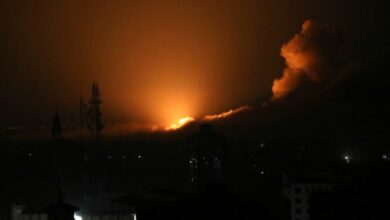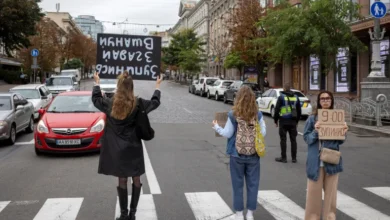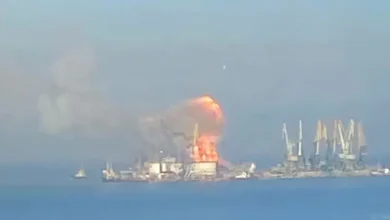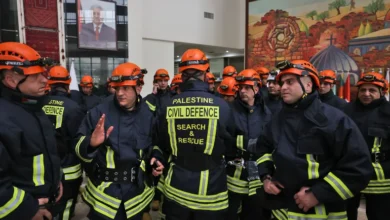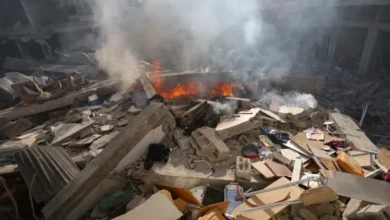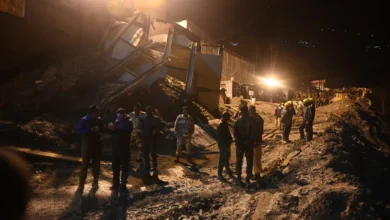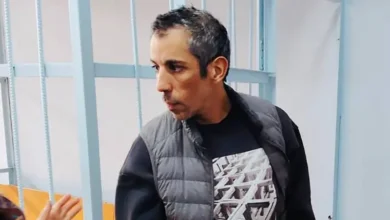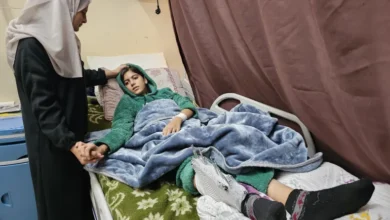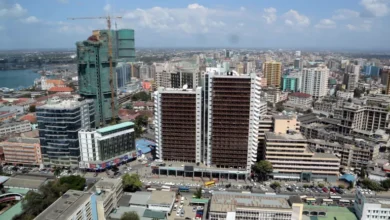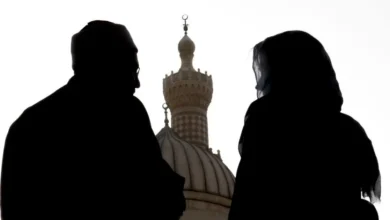‘Piles of body parts’: Gaza’s Maghazi residents find families ‘in pieces’
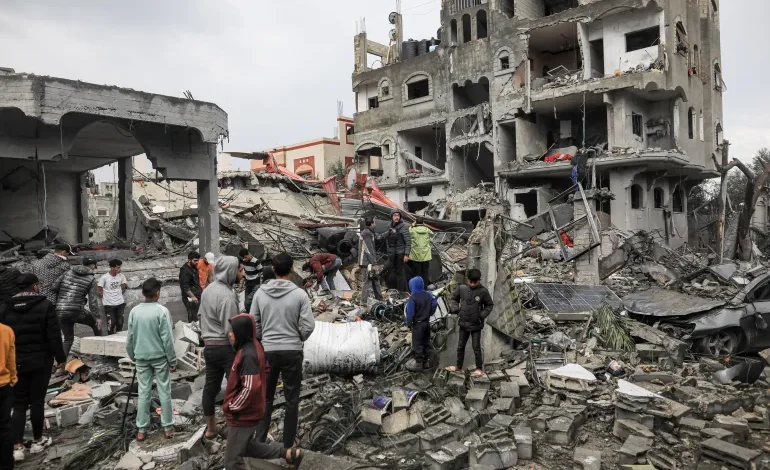
It has been four days since Gaza’s smallest refugee camp was pounded in yet another series of Israeli air strikes, but Palestinians there are still digging up the bodies of their loved ones from under the rubble.
The onslaught in central Gaza’s Maghazi late on Sunday killed at least 90 people, including children and many who were internally displaced.In one of the deadliest attacks on the Gaza Strip since Israel launched a war on the enclave on October 7, residents including Ashraf al-Haj Ahmed said the assault happened “suddenly” and without prior warning.
His relative’s home was among those that were flattened to the ground. Al-Haj Ahmed recalled running towards it as soon as the bombardment woke him up, just a few blocks down.
At the scene of the attack, he found a four-storey building destroyed “on top of those who were living in it”.
“There must have been around 40 people, among them are the owners of the house, as well as displaced families who were taken in,” he said.
At least three houses in the overcrowded camp were hit by Israeli air strikes. Officials in Gaza said seven families were among the casualties.
While the official number of those who were killed stands at 90, residents of the camp near Deir el-Balah say in reality, the figure is much higher as entire residential blocks were wiped out.
“In each home, there’s a minimum of 50 people,” another Maghazi resident told Al Jazeera. “A lot of them are displaced Palestinians from other parts of Gaza who were forced to flee their homes.”The camp normally houses 30,000 people, according to the UN refugee agency for Palestinians (UNRWA). But with the displacement of Palestinians fleeing Israel’s relentless bombardment in other parts of the enclave, the number of people there has risen to an estimated 100,000.
“We pulled out so many body parts that we can’t even estimate the total number of deaths yet,” the second resident said.
“They’re all in pieces, and we’re pulling them out with our bare hands,” he added. “We’ve now gathered at least two piles of body parts.”
‘Dark and painful night’
Israel’s attacks have not spared homes and shelters that people have fled to.
Despite being on the southern side of the Strip, an area that Israeli forces deemed “safe” and ordered civilians from the north to flee ahead of their ground offensive, Maghazi has been subjected to intense artillery and air raids.
It was also attacked last month when at least 50 Palestinians were killed. The vicinity of the camp was also subjected to intense Israeli shelling over the last week.
Abu Rami Abu al-Ais is among those who have been sheltering in Maghazi ever since he left his home in the al-Zahra neighbourhood. He said Sunday’s attack was not the first time he and his family members had been hit.
He echoed al-Haj Ahmed’s experience and said there had been “no warnings whatsoever” prior to the strikes.
Al-Ais said in previous assaults on the enclave, Israeli forces would sometimes warn residents of a building to evacuate a few minutes before an attack, either by throwing leaflets or via speakerphones. But during this offensive, there had been no such warnings.
“The rockets fall on the heads of innocent people sleeping in their homes,” he said. “They [Israel] want to commit a complete genocide.”
Al-Ais said people are still collecting the remains of their friends, neighbours and relatives with their bare hands.
“We found the remains of women and children who were blown up. Their body parts have been scattered over a span of about three blocks,” due to the intensity of the strikes, al-Ais said.
“It was a very dark and painful night for Maghazi,” he recalled. “The widespread and sheer destruction is indescribable.”
